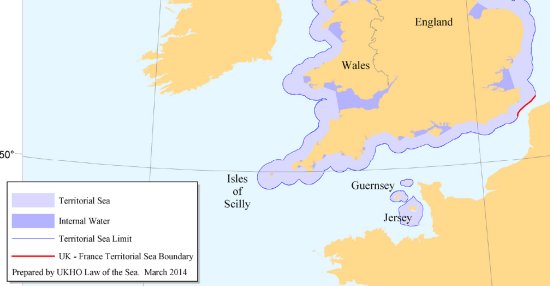A question from one of our online Foundation candidates:
“I was wondering why foundation level users are not allowed to use HF radio at sea? I’m guessing that it has something to do with monitoring /standards and a permanent address but that does not make sense if you can have a /A or a /M suffix?”
An interesting question. I’m no legal expert on this, so this is a personal opinion:
Operating overseas
Foundation candidates will hopefully be aware that they cannot operate in other countries at Foundation – this is because most other country’s administration don’t routinely recognise the UK “Foundation” licence.
The UK “Full” licence, however, complies with an International standard called HAREC (Harmonised Amateur Radio Examination Certificate). Most countries recognise HAREC as acceptable, so a UK “Full” is accepted by a good percentage of countries.
Operating “At sea”
The Foundation licence allows you to operate from a vessel in inland and internal waters. The exact wording states that Foundation & Intermediate can’t operate from a:
"vessel operating on the seaward side of the low-water line along the coastline as marked on large scale charts officially recognised by the relevant coastal state".
Section 2.14 of the October 2018 Ofcom Guidance for Licencees document states:
Generally speaking, the ‘baseline’ is the mean low water mark but can be a line across the mouth of a river estuary.
Beyond the baseline, you’re in UK Territorial sea. Section 2.14 of the October 2018 Ofcom Guidance for Licencees document states:
The UK’s territorial seas extend either for 12 nautical miles from the baseline or until a point is reached halfway to another country, such as France.
Beyond the Territorial sea, you’re in International waters, or in another country’s territorial waters.

Ofcom has no jurisdiction outside the UK (and its territorial seas), so therefore can’t cover transmitting in International waters or another country’s waters.
The Full licence does allow operating from a vessel on the seaward side of the low water line, to the boundary of the UK territorial seas, as stated in the licence:
"2(1) The Licensee may only operate the Radio Equipment in the United Kingdom (including its territorial seas) subject to sub-clauses (a) – (c):(a) Where this Licence is a Full Licence only, and unless it is a Full (Club) or Temporary Licence, the Licensee may operate the Radio Equipment from a Maritime Mobile location;"
In summary, at Foundation and Intermediate, you’ll need to get a copy of the appropriate Admiralty chart from the UK Hydrographic Office (UKHO) to find the low water line, and you can operate in a vessel that’s on the landward side or from Internal waters. From the seaward side of the baseline, you’ll need to get a Full licence.
Exception?
As you’ll see from the comments below, this is open to interpretation. Section 2.14 of the October 2018 Ofcom Guidance for Licencees document states:
Holders of a Foundation or Intermediate Licence may use their Radio Equipment beyond the baseline but are limited to the extent of UK territorial seas.
This implies that Foundation can operate over the seaward side of the line. However, Section 2.15 of the same document says:
The Licence provides that only a Full licensee may operate ‘Maritime Mobile’. This expression refers to a ‘Vessel at Sea’ and that expression, in turn, refers to operation on the seaward side of the low-water line but without imposing any further territorial restriction.
… which I read to mean that over the line, you have to be a Full licencee to operate from a “Vessel” beyond the line.
The Licence, under 17(1)(rr) defines a “Vessel” as:
any floating structure which is capable of being manned
and a Vessel at sea as:
A Vessel operating on the seaward side of the low-water line along the coastline as marked on large scale charts officially recognised by the relevant coastal state
So, my understanding is that for a Foundation licencee to legally operate over the seaward side of the low water line but within UK Territorial sea, they can’t be on a floating structure, such as a ship or boat. Two examples have been given – Foundation could potentially operate from the end of a long pier, or an oil rig that’s supported by legs on the sea floor.
(Just my understanding, which may be wrong!) Pete M0PSX



Pete, have you noticed that Condition 4 of the updated licence conditions?
Condition 4 – Geographical Boundaries 1. The Licensee is authorised to:
a) establish, install and use the Radio Equipment in and over the United Kingdom, the Channel Islands and the Isle of Man in each case including their territorial sea; and
b) use the Radio Equipment aboard any ship or aircraft registered in the United Kingdom, the Channel Islands or the Isle of Man in international waters or airspace.
————–
My takeaway from this is that I can now operate with a foundation licence from a sea kayak beyond the mean low water line.
I can’t see any other restriction, unless I’ve missed it. Would you agree?
Hi Pete,
Yes, but note that until 1st of September 2024, Foundation exams are on the OLD licence conditions. The new exam syllabus doesn’t start until 1/9/24, so our training material is still having to cover the old licence conditions (10 watts, etc). For some reason, RSGB wasn’t ready for the revised exams to start when the licence did!
Best regards,
Pete